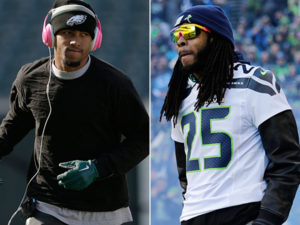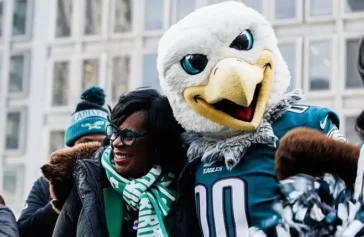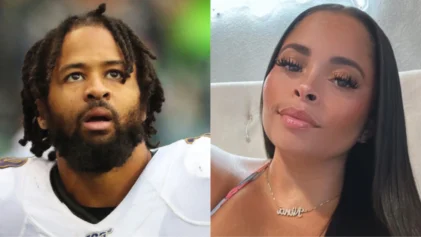
I’m not going to tell you that DeSean Jackson isn’t in a gang, because I can’t say unequivocally that he isn’t. I can’t tell you whether his friends have done the things police have accused them of doing, because I wasn’t there. I can’t tell you what DeSean does with his time, because we play football on opposite ends of the country. I can only tell you that I believe him to be a good person, and if you think, say or write otherwise without knowing the man, you’re in the wrong.
And if it’s true the Eagles terminated his contract in part because they grew afraid of his alleged “gang ties,” then they did something worse. [Editor’s note: Jackson has agreed to terms with the Redskins.]
I look at those words—gang ties—and I think about all the players I’ve met in the NFL and all of us who come from inner-city neighborhoods like mine in Los Angeles, and I wonder how many of us could honestly say we’re not friends with guys doing the wrong things.
I can’t.
I grew up in Watts, and I played baseball with DeSean in elementary school on a team coached by his father near Inglewood. His father, Bill, picked me up from elementary school 30 minutes away from his home for practice and games because my parents both worked and didn’t finish until later, and I wanted to play baseball with some childhood friends. Bill was a great coach, and a great man. He died of pancreatic cancer in 2009, the summer after his son’s rookie season. DeSean and I didn’t hang out then like we did as kids.
Those men with DeSean in the social pictures and the police reports weren’t his closest friends in childhood, but when his father died and few people were there for him, they were there. When a tragic event like that happens, the people who are around are the people who are around, and they were there for him.
Was DeSean supposed to then say, “Thanks guys, but now that I’m a millionaire, please leave me alone”? Even if he wanted to, he wouldn’t have. In desperate times for people who come from desperate communities, your friends become your family. I wouldn’t expect DeSean to “distance himself” from anybody, as so many people suggest pro athletes ought to do despite having no understanding of what that means. Going to college and playing in the NFL creates a natural distance, but we can’t push people away just because they’re not as successful as us. I can’t change who I grew up with, but what I can do is try to educate them on the right way of doing things, help them when they need it, and try to keep them out of trouble.
There is, of course, a tipping point. There have been times when I realized that someone can’t be helped, because they continue doing the wrong things. Typically, the only time I cut someone off is when they’re in jail, because I can’t help them there.
And if they’re accused of a crime, as DeSean’s friends have been, should that reflect poorly on me? Consider that for every several guys I try to help who end up dead or in jail, there’s another person I was able to rescue from a similar end. Should I give up on everybody out of fear of being dirtied by the media?
Sorry, but I was born in this dirt.
NFL teams understand that. The Seattle Seahawks get it. The Philadelphia Eagles apparently do not.
This offseason they re-signed a player who was caught on video screaming, “I will fight every n—– here.” He was representing the Philadelphia Eagles when he said it, because, of course, everything we do is reflective of the organization. But what did they do to Riley Cooper, who, if he’s not a racist, at least has “ties” to racist activity? They fined him and sent him to counseling. No suspension necessary for Cooper and no punishment from the NFL, despite its new interest in policing our use of the N-word on the field. Riley instead got a few days off from training camp and a nice contract in the offseason, too.
Commit certain crimes in this league and be a certain color, and you get help, not scorn. Look at the way many in the media wrote about Jim Irsay after his DUI arrest. Nobody suggested the Colts owner had “ties” to drug trafficking, even though he was caught driving with controlled substances (prescription pills) and $29,000 in cash to do who-knows-what with. Instead, poor millionaire Mr. Irsay needs help, some wrote.
But DeSean Jackson is the menace, right? He’s just as bad as those guys he parties with because he threw up a Crip sign in a picture and he owns a gangsta rap record label. If only all record-label owners were held to this standard, somebody might realize that Dr. Dre and Snoop Dogg weren’t the bosses behind NWA. Jim Irsay lookalikes in suits were.
But go ahead and judge DeSean for the company he keeps. While you’re at it, judge me, too, because I still live in Los Angeles, and my family does, too. We didn’t run from where we grew up. We aren’t afraid to be associated with the people who came up with us. We brought some of our money back and started charities and tried to help out a few guys who were with us when we were nobodies.
I won’t apologize for that, and I suspect neither will DeSean when he’s back on the field doing what he’s always done: grinding through adversity.


